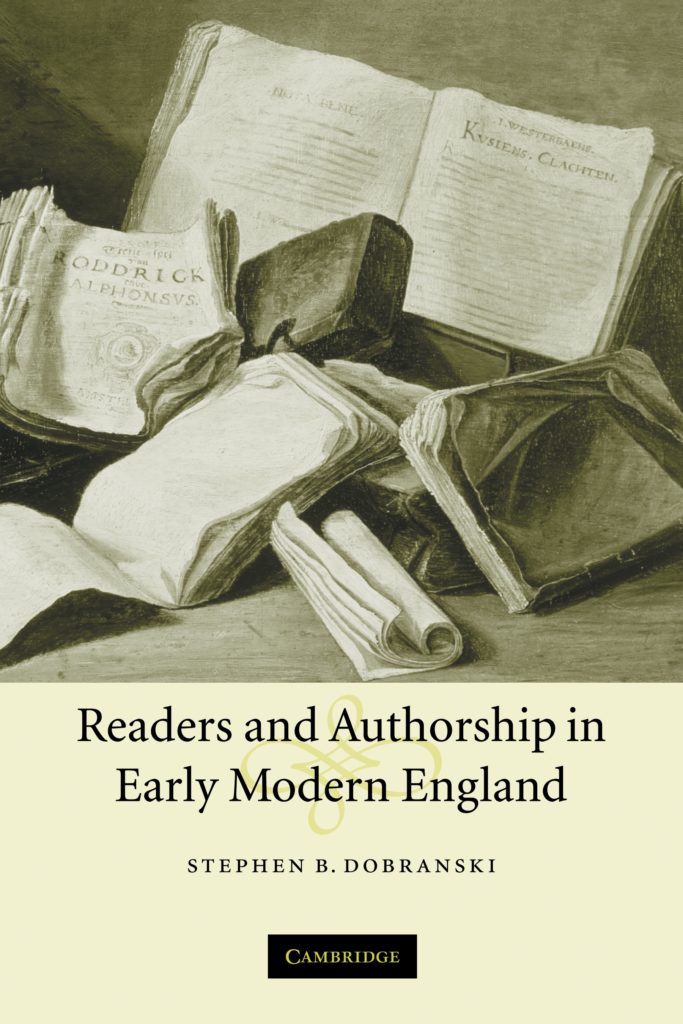Readers and Authorship in Early Modern England
While authors in early modern England were gaining new authority—legally, economically, and symbolically—Renaissance readers also were expected to participate in and make use of an author’s writings. In this book, Stephen B. Dobranski examines how the seventeenth-century phenomenon of printing apparently unfinished works ushered in a new emphasis on authors’ responsibility for written texts while it simultaneously reinforced Renaissance practices of active reading. The omissions in the works of Philip Sidney, Ben Jonson, John Donne, Robert Herrick, and John Milton provide a unique window into English literary history. Through these blank spaces we glimpse the tension between implication and inference, between writers’ intentions and readers’ responses, and between an individual author and a collaborative community.
Winner of the South Atlantic Modern Language Association’s Book Award for the best scholarly book published in English (2006)
Praise for Readers and Authorship in Early Modern England:
“…a provocative book. Its strength lies in its close readings and in the way it opens up certain types of missing texts to literary and historical interpretation.”
Marcy L. North, Modern Philology
“Dobranski consolidates the reputation he began to build with his 1999 monograph Milton, Authorship, and the Book Trade. In both books he moves with ease and sophistication between literary criticism and book history.”
William H. Sherman, Renaissance Quarterly
